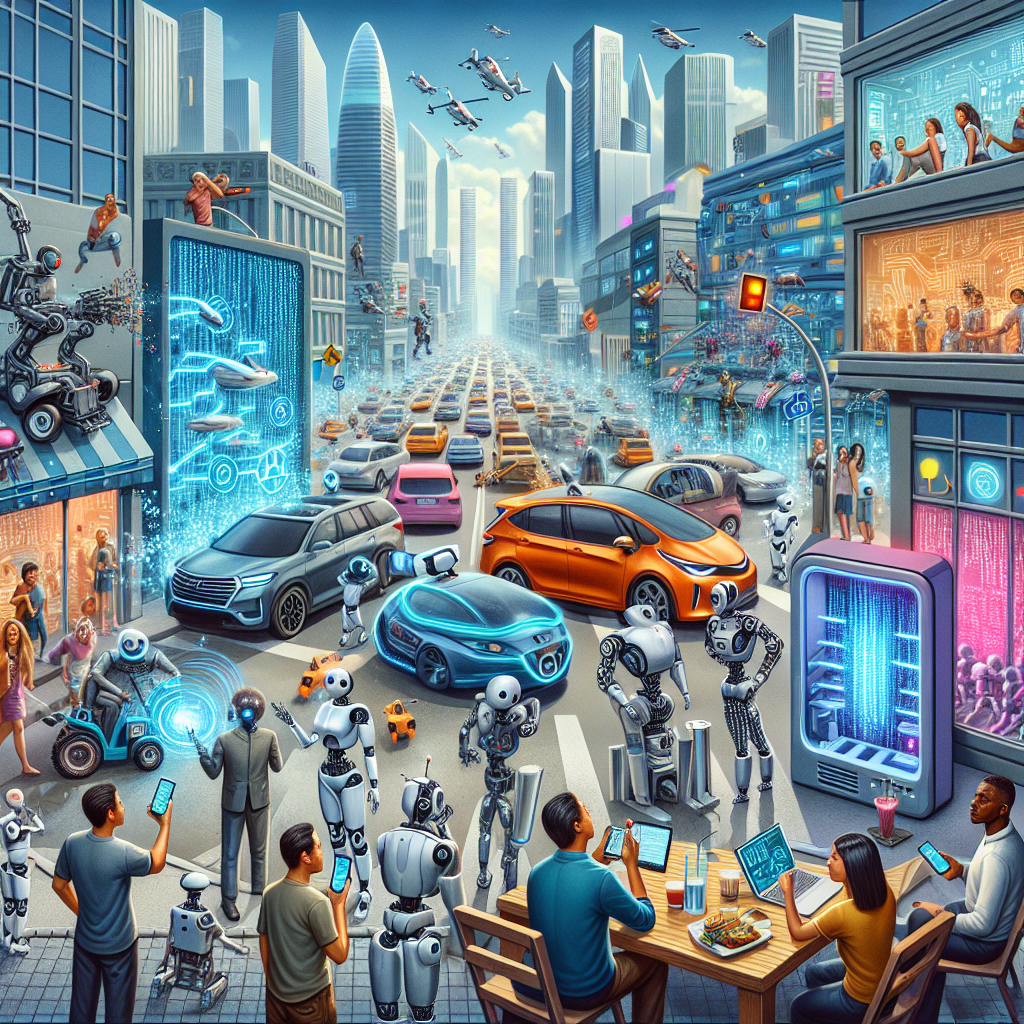Google AI’s Week of Blunders and OpenAI’s Controversial Moves
Introduction
This week in AI news has been nothing short of chaotic, with major developments from giants like Google and OpenAI. While Google’s efforts to integrate AI directly into search faced severe backlash, OpenAI found itself embroiled in controversies ranging from internal disputes to voice imitation accusations. Let’s dive deep into these stories and their potential impacts on the AI landscape.
Google’s AI Missteps
Google’s recent attempts to integrate AI more deeply into its search engine have led to some alarming results. Users have reported a litany of bizarre and downright dangerous recommendations coming from Google’s AI. This comes after Google's previous issues with their AI image generation, where the technology produced images with incorrect racial attributes.
AI Search Inaccuracies
One of the most shocking examples was when a user searched for “cheese not sticking to pizza” and received a suggestion to add non-toxic glue to the sauce. Other dangerous errors included advice to leave dogs in hot cars and misinformation about historical dates and medical advice. Here are some notable misfires:
- Cheese on Pizza: Google's AI recommended adding 1/8 cup of non-toxic glue to keep cheese from sliding off a pizza.
- Historical Errors: When asked how long ago 1919 was, the AI erroneously claimed it was 20 years ago.
- Medical Misinformation: The AI suggested that doctors recommend smoking two to three cigarettes daily during pregnancy.
- Animal Safety: It stated it’s always safe to leave a dog in a hot car, which is dangerously incorrect.
These examples highlight a significant flaw in Google’s AI deployment strategy: a lack of robust fact-checking mechanisms.
https://www.youtube.com/watch?v=A74GvZsJsUM
Public Reaction and Concerns
Understandably, these AI blunders have sparked outrage and concern among users. The potential for harm is considerable, especially for individuals who may take such recommendations at face value. This situation underscores the need for more rigorous testing and validation before deploying AI systems in such critical applications.
OpenAI’s Internal Turmoil
While Google was dealing with its AI’s public blunders, OpenAI faced its own set of challenges internally. The departure of key personnel and controversies over voice imitation have put a spotlight on the company’s operational and ethical practices.
Key Departures
The exit of Yan, OpenAI’s head of super alignment, and other prominent figures has raised eyebrows. Yan’s departure was marked by a pointed critique of OpenAI’s priorities. According to Yan, OpenAI has shifted its focus from safety and security to developing shiny new products. His concerns included:
- Lack of Focus on Safety: Yan argued that more resources should be allocated to safety, adversarial robustness, and societal impact.
- Resource Allocation: He pointed out the struggle for computing resources needed to conduct crucial research.
- Safety Culture: He warned that building smarter-than-human machines without a safety-first approach is inherently dangerous.
Non-Disparagement Agreements
An interesting revelation that came to light was the presence of non-disparagement agreements in the departure deals of OpenAI employees. These agreements potentially prevented former employees from speaking negatively about the company. Sam Altman, OpenAI’s CEO, addressed these concerns by clarifying that such agreements were outdated and steps were being taken to rectify them.
Voice Imitation Controversy
OpenAI also faced allegations regarding the use of voice imitation for its GPT-4 demo. Scarlett Johansson’s iconic voice in the movie "Her" seemed to be replicated in OpenAI’s voice assistant, Sky. Despite Johansson’s refusal to allow her voice to be used, OpenAI proceeded with a voice actor whose voice bore an uncanny resemblance to hers. This sparked a debate about ethics in AI voice replication.
The Ethical Dilemma
The core of the controversy lies in the ethical implications of using a voice that closely mimics a celebrity without consent. While OpenAI maintained that they used a different actor, the public perception leaned towards the belief that OpenAI intentionally sought to replicate Johansson’s voice.
Relevant Read:
For more background on AI voice replication and its ethical implications, you can explore this article on AI voice cloning.
Partnership with News Corp
In a strategic move, OpenAI partnered with News Corp, gaining access to a vast repository of current and archived content from major publications. This collaboration aims to enhance OpenAI’s training data for its models.
Concerns Over Bias
News Corp is known for its strong editorial biases, notably through outlets like Fox News. This partnership has raised concerns about potential biases creeping into OpenAI’s models. However, it’s likely that these biases are already present to some degree, and this agreement merely formalizes the data access.
Relevant Read:
For a deep dive into how AI models can be influenced by biased data, check out this study on AI bias.
Conclusion
This week has been a rollercoaster for AI enthusiasts and professionals alike. Google’s AI mishaps highlight the critical need for robust validation and adherence to safety protocols before deploying AI systems at scale. Meanwhile, OpenAI’s internal strife and ethical dilemmas underscore the importance of transparency and ethical considerations in AI development. As the AI field continues to evolve, it’s crucial for companies to balance innovation with responsibility, ensuring that advancements benefit society without compromising safety or ethical standards.
Stay tuned for more updates on these unfolding stories, as the landscape of artificial intelligence is ever-changing and full of surprises.
Related News
- The Tumultuous World of OpenAI: Trust, Safety, and Controversies
- The Dynamic Landscape of AI: Drama, Innovations, and Speculations
- Navigating the Complex World of AI: A Dive into Recent Developments and Controversies
- Unraveling the Kaleidoscope of AI: A Week of Unprecedented Breakthroughs and Drama
- A Week of AI Overload: OpenAI and Google Battle for Dominance
